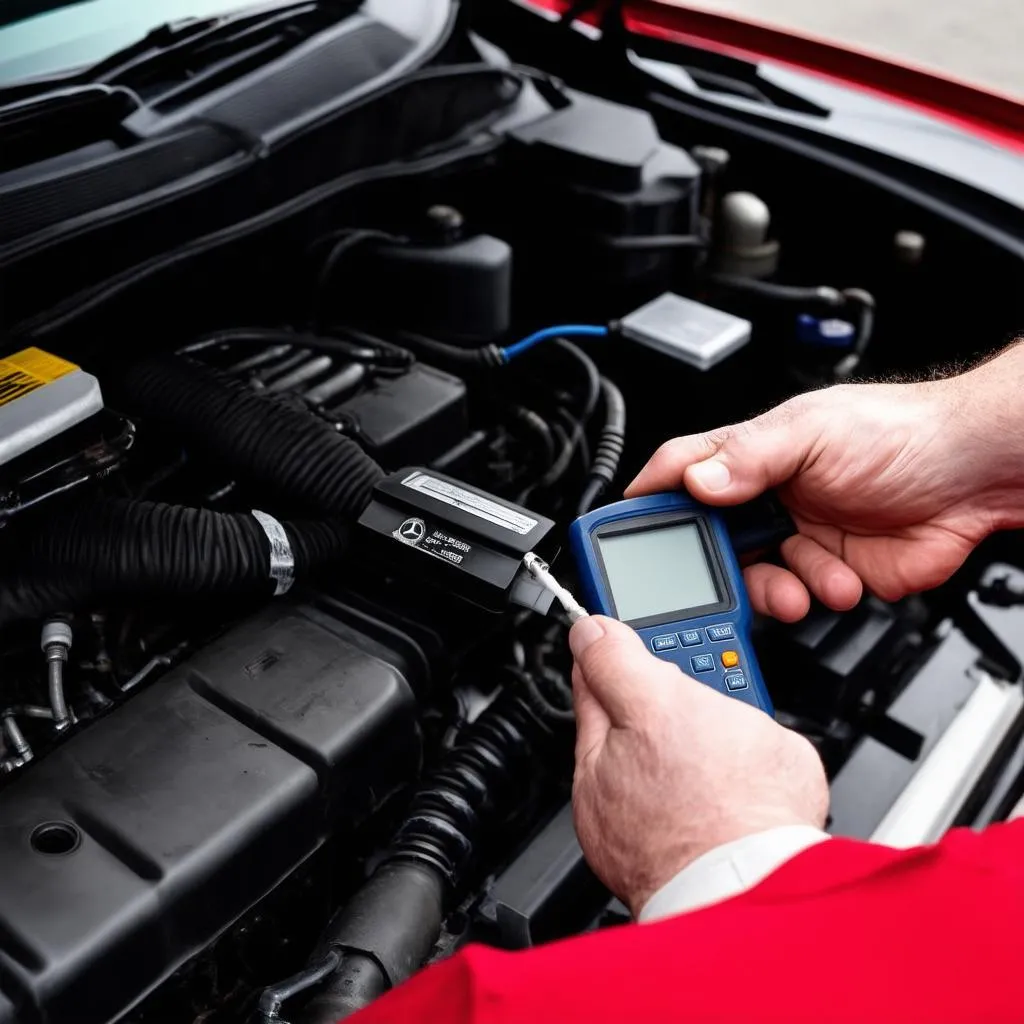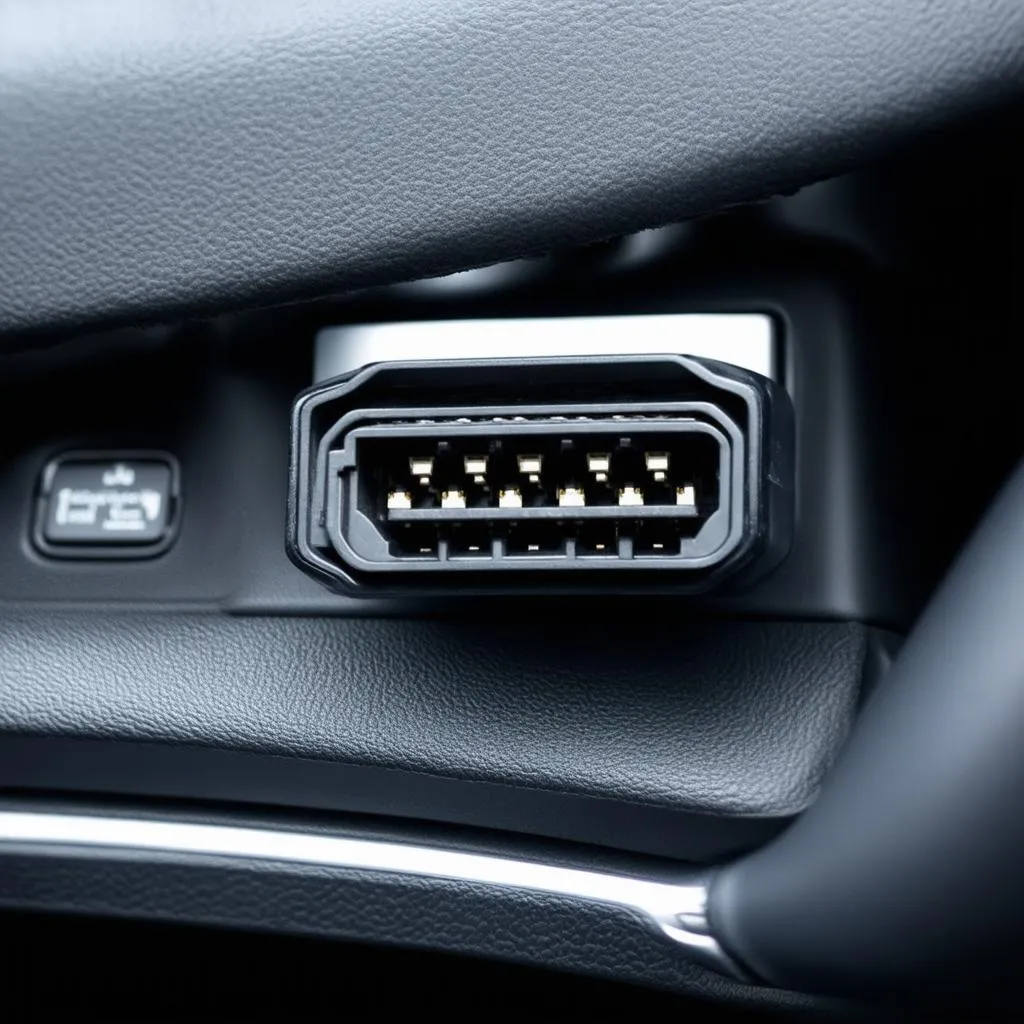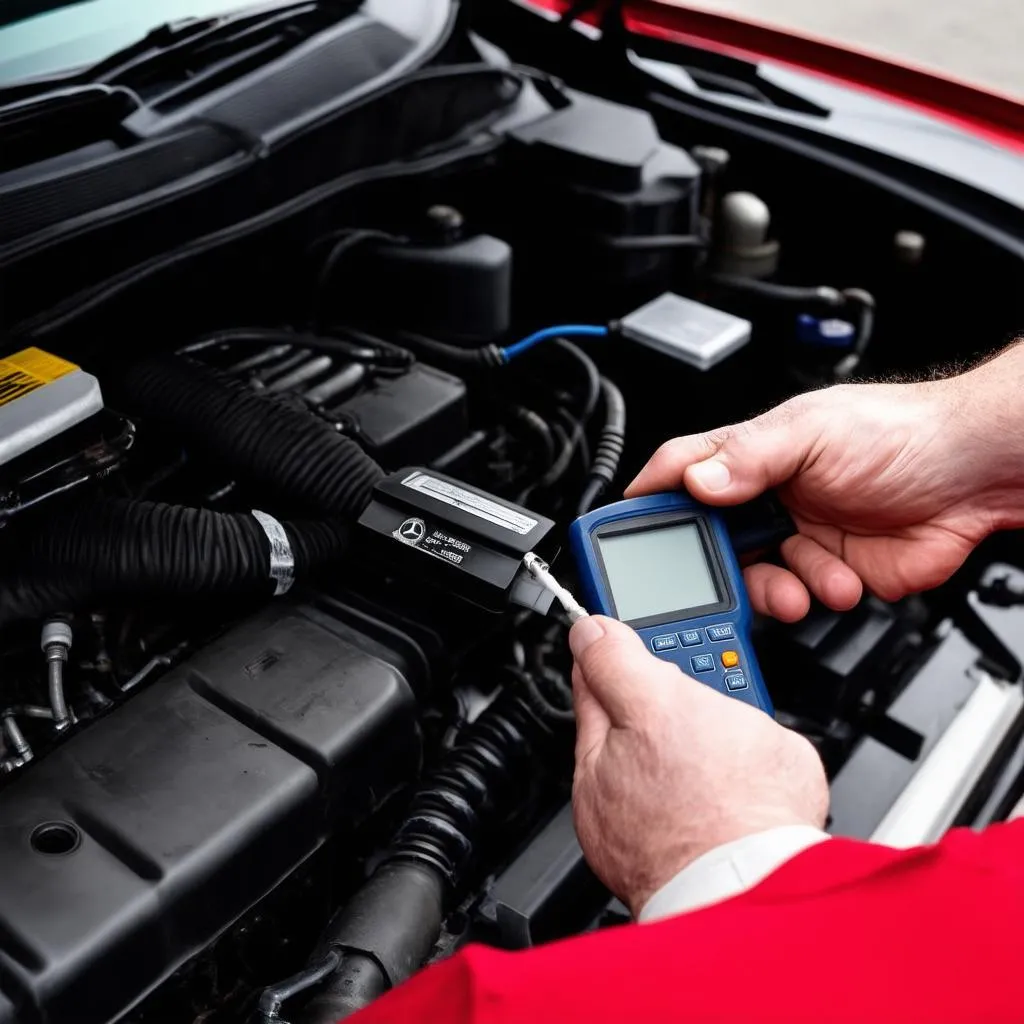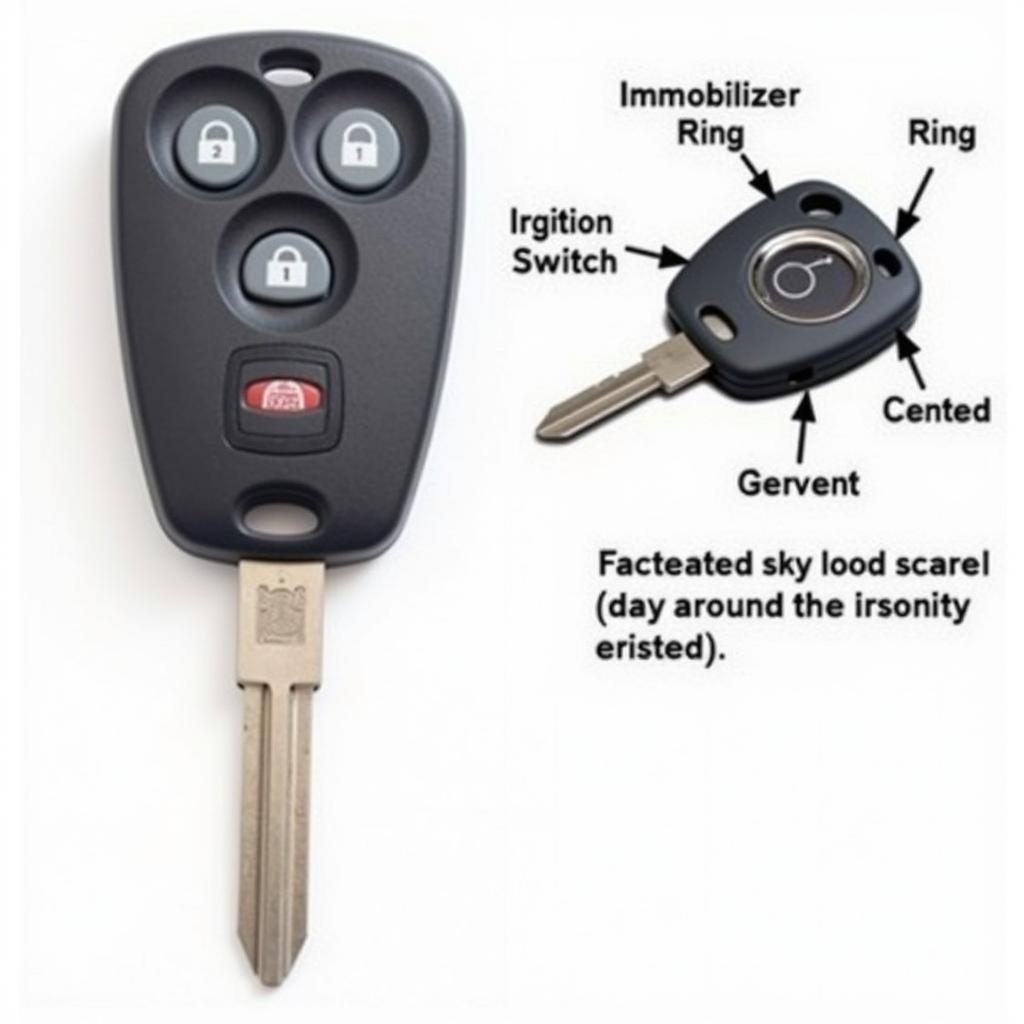As a car owner, you understand the importance of a reliable diagnostic tool, especially with a sophisticated machine like a Mercedes Benz. When it comes to these luxurious vehicles, you want to ensure you’re making informed decisions about their maintenance. So, are fixed diagnostic tools a good option? Let’s dive in and find out.
Understanding Diagnostic Tools and Your Mercedes
Before we assess if a fixed tool is right for you, let’s break down what these tools do. Diagnostic tools are essentially scanners that plug into your car’s OBD-II port, acting as a window into your Mercedes’s computer system. They read fault codes, allowing you to understand the health of your vehicle, troubleshoot issues, and potentially save on expensive mechanic bills.
“Having the right diagnostic tool for your Mercedes can be invaluable,” says automotive electronics expert Dr. Emily Carter, author of “Modern Automotive Systems.” “It’s like having a direct line to your car’s brain, giving you the insights you need to make informed decisions about its care.”
Fixed Diagnostic Tools: A Closer Look
Fixed diagnostic tools are dedicated devices specifically designed for a single car make, in this case, Mercedes Benz. They boast advanced features tailored to delve deeper into the intricate systems of your vehicle.
Advantages of Fixed Tools
- In-depth Coverage: These tools are built with extensive Mercedes-specific software, providing comprehensive coverage of all the systems within your car.
- Specialized Functions: Expect functionalities like module coding, adaptations, and advanced diagnostics that generic OBD-II scanners might not offer.
- User-Friendly Interface: Many fixed tools are designed with an intuitive interface, making them relatively user-friendly even for those new to car diagnostics.
Disadvantages of Fixed Tools
- Limited Versatility: The biggest drawback is their limited scope. They only work on Mercedes Benz vehicles, rendering them unusable for other car brands you might own.
- Higher Cost: As you might expect, specialization comes at a price. Fixed tools are typically more expensive than their generic counterparts.
Are They Worth It?
Whether a fixed diagnostic tool is a good investment depends on your individual needs and circumstances.
Consider a fixed tool if:
- You solely own Mercedes Benz vehicles.
- You’re comfortable with a higher initial investment.
- You need the most comprehensive diagnostic capabilities for your Mercedes.
A generic OBD-II scanner might suffice if:
- You own cars from various manufacturers.
- You’re primarily interested in reading and clearing basic fault codes.
- You’re on a tighter budget.
 A mechanic using a diagnostic tool on a Mercedes Benz
A mechanic using a diagnostic tool on a Mercedes Benz
FAQs about Mercedes Diagnostic Tools
Here are answers to some common questions you might have:
Can I code injectors with a fixed diagnostic tool?
Yes, many fixed tools offer injector coding functionality, which is essential for maintaining optimal engine performance in your Mercedes.
Do I need a professional-grade tool?
The complexity of your needs dictates the level of tool you require. Professional-grade tools offer more advanced functionalities but come at a premium.
Can I update the software on a fixed tool?
Most reputable brands provide software updates, ensuring your tool stays compatible with the latest Mercedes models and technologies.
 Close-up of an OBD-II port in a Mercedes Benz
Close-up of an OBD-II port in a Mercedes Benz
Reaching Out for Expert Advice
Navigating the world of car diagnostics can be daunting. For further guidance on choosing the right diagnostic tool for your Mercedes Benz, you can connect with CARDIAGTECH. We offer a range of high-quality diagnostic solutions, including specialized options for Mercedes vehicles.
Don’t hesitate to reach out – we’re here to help you keep your Mercedes running smoothly!



